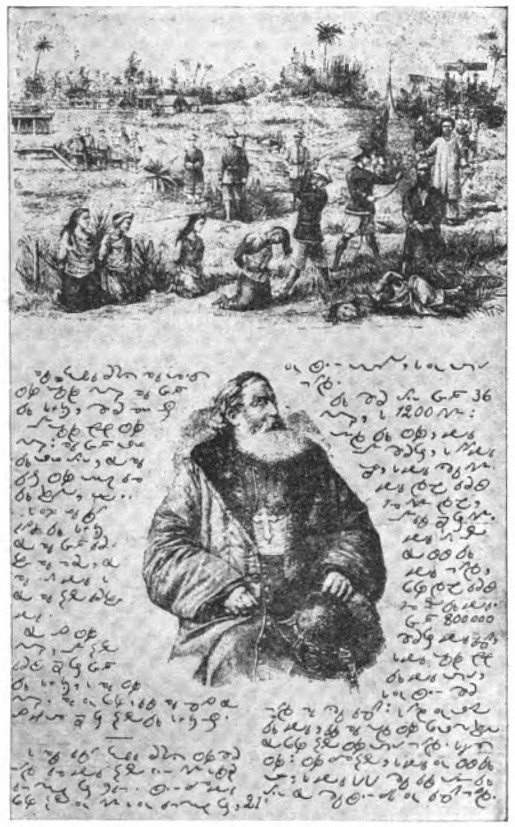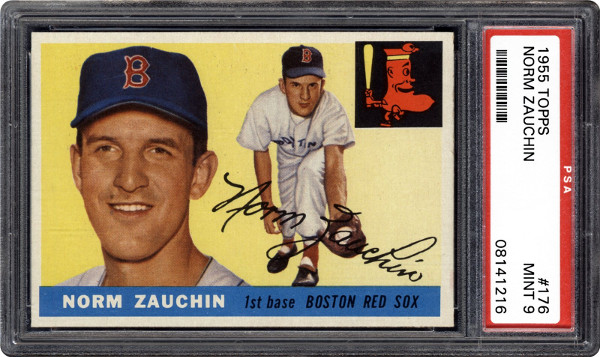
Wallsend Metro station is located near the Segedunum Roman fort at the end of Hadrian’s Wall, which marked the northern limit of the Roman empire at the time of its construction in 122 A.D.
Accordingly its signs are rendered in Latin.


Wallsend Metro station is located near the Segedunum Roman fort at the end of Hadrian’s Wall, which marked the northern limit of the Roman empire at the time of its construction in 122 A.D.
Accordingly its signs are rendered in Latin.

In 1982, J.K. Aronson of Oxford, England, sent this mysterious fragment to Douglas Hofstadter:
‘T’ is the first, fourth, eleventh, sixteenth, twenty-fourth, twenty-ninth, thirty-third …
The context of their discussion was self-reference, so presumably the intended conclusion of Aronson’s sentence was … letter in this sentence. If one ignores spaces and punctuation, then T does indeed occupy those positions in Aronson’s fragment; the next few terms would be 35, 39, 45, 47, 51, 56, 58, 62, and 64. The Online Encyclopedia of Integer Sequences gives a picture:
1234567890 1234567890 1234567890 1234567890 1234567890 Tisthefirs tfourthele venthsixte enthtwenty fourthtwen tyninththi rtythirdth irtyfiftht hirtyninth fortyfifth fortyseven thfiftyfir stfiftysix thfiftyeig hthsixtyse condsixtyf ourthsixty ninthseven tythirdsev entyeighth eightiethe ightyfourt heightynin thninetyfo urthninety ninthonehu ndredfourt honehundre deleventho nehundreds ixteenthon ehundredtw entysecond onehundred twentysixt honehundre dthirtyfir stonehundr edthirtysi xthonehund redfortyse cond...
But there’s a catch: In English, most ordinal adjectives (FIRST, FOURTH, etc.) themselves contain at least one T, so the sentence continually creates more work for itself even as it lists the locations of its Ts. There are a few T-less ordinals (NINE BILLION ONE MILLION SECOND), but these don’t arrange themselves to mop up all the incoming Ts. This means that the sentence must be infinitely long.
And, strangely, that throws our initial presumption into confusion. We had supposed that the sentence would end with … letter in this sentence. But an infinite sentence has no end — so it’s not clear whether we ought to be counting Ts at all!
In 1999 the German state of Mecklenburg-Vorpommern passed a law governing the labeling of beef; its short title was Rinderkennzeichnungs- und Rindfleischetikettierungsüberwachungsaufgabenübertragungsgesetz (PDF). The hyphen indicates that the first word would have the same ending as the second; thus the two words are Rinderkennzeichnungsüberwachungsaufgabenübertragungsgesetz and Rindfleischetikettierungsüberwachungsaufgabenübertragungsgesetz. (The law’s formal long title is Gesetz zur Übertragung der Aufgaben für die Überwachung der Rinderkennzeichnung und Rindfleischetikettierung, or “Law on Delegation of Duties for Supervision of Cattle Marking and Beef Labeling.”)
Rindfleischetikettierungsüberwachungsaufgabenübertragungsgesetz was nominated for Word of the Year by the German Language Society. Here it is sung by the Australian National University’s UniLodge Choir:
There’s more: In 2003 a decree was passed modifying real estate regulations; its short title was Grundstücksverkehrsgenehmigungszuständigkeitsübertragungsverordnung. Can someone sing that?
Since it’s deliberately constructed, Esperanto doesn’t have the complex history of a natural language. But we can invent one! Manuel Halvelik created “Arcaicam Esperantom,” a fictional early form of the language akin to Old English. Here’s the Lord’s Prayer in standard Esperanto:
Patro nia, kiu estas en Ĉielo,
Estu sanktigita Via Nomo.
Venu Via regno,
Plenumiĝu Via volo
Kiel en Ĉielo, tiel ankaŭ sur Tero.
Al ni donu hodiaŭ panon nian ĉiutagan,
Kaj al ni pardonu niajn pekojn
Kiel ankaŭ ni tiujn, kiuj kontraŭ ni pekas, pardonas.
Kaj nin ne konduku en tenton
Sed nin liberigu el malbono.
Amen.
And here it is in Halvelik’s “archaic” form:
Patrom nosam, cuyu estas in Chielom,
Estu sanctiguitam Tuam Nomom.
Wenu Tuam Regnom,
Plenumizzu Tuam Wolom,
Cuyel in Chielom, ityel anquez sobrez Terom.
Nosid donu hodiez Panon nosan cheyutagan,
Ed nosid pardonu nosayn Pecoyn,
Cuyel anquez nos ityuyd cuyuy contrez nos pecait pardonaims.
Ed nosin ned conducu in Tentod,
Sed nosin liberigu ex Malbonom.
Amen.
Here’s Halvelik’s full description (PDF, in Esperanto).

In British Columbia there is a little newspaper, the Kamloops Wawa, circulating among several tribes of North American Indians. The unique feature of this journal is that it is printed in shorthand. Its story is a remarkable one. Some years ago the Rev J.M. Le Jeune, a Breton missionary, arrived in British Columbia to take charge of a territory some fifty miles square. He found the great obstacle to his work to be the absence of any means of written communication, as the natives had no written language of their own. His repeated efforts to teach them to read and write by ordinary methods failed entirely. The missionary was acquainted with the simple French Duployan shorthand, and then conceived the novel idea of teaching the Indians to write their own language phonetically by means of the shorthand characters. He adapted the stenographic signs of the Chinook language, and the experiment proved a complete success. There are to-day three thousand Indians able to to write and read their own language by no other means than shorthand. ‘Wawa’ means ‘talk’ in the Chinook, hence the title of the little newspaper which has been the natural outcome of the missionary’s undertaking. The page shown above is part of an article dealing with the Boxer trouble in China.
— J.D. Sloan, in The Strand Magazine, October 1911
periergia
n. bombastic or laboured language
galimatias
n. confused language, meaningless talk, nonsense
taigle
v. to impede or hinder; hence, to fatigue; weary
obtrect
v. to disparage or decry
A paragraph from an unnamed “publication from a leading geographical society”:
The examples given suggest that the multiformity of environmental apprehension and the exclusivity of abstract semantic conceptions constitute a crucial distinction. Semantic responses to qualities, environmental or other, tend to abstract each individual quality as though it were to be considered in isolation, with nothing else impinging. But in actual environmental experience, our judgements of attributes are constantly affected by the entire milieu, and the connectivities such observations suggest reveal this multiform complexity. Semantic response is generally a consequence of reductive categorization, environmental response or synthesizing holism.
In The Jargon of the Professions, Kenneth Hudson suggests that the authors “should be locked up without food or water until they can produce an acceptable translation.” In Secret Language, Barry J. Blake adds, “I think the passage simply means that in experiencing the environment we need to look at it as a whole rather than at particular properties, though I am at a loss to decode the first sentence.”

pernicity
n. swiftness, quickness, agility
discoverture
n. the state of not having a husband
supersalient
adj. leaping upon
desponsate
adj. married
The Fenway Millionaires also have a ‘sleeper’ in Norm Zauchin, a massive fellow just out of the Army. Don’t underestimate him. When he was at Birmingham he pursued a twisting foul ball into a front row box. He clutched frantically. He missed grabbing the ball but he did grab a girl, Janet Mooney. This might not be considered a proper introduction by Emily Post but it worked for Zauchin. He married the gal. Nope. Don’t underestimate an opportunist like that.
— Arthur Daley, “Life Among the Millionaires,” New York Times, March 11, 1954
I am such a dolent man,
I eptly work each day;
My acts are all becilic,
I’ve just ane things to say.
My nerves are strung, my hair is kempt,
I’m gusting and I’m span:
I look with dain on everyone
And am a pudent man.
I travel cognito and make
A delible impression:
I overcome a slight chalance,
With gruntled self-possession.
My dignation would be great
If I should digent be:
I trust my vagance will bring
An astrous life for me.
— J.H. Parker
From Schott’s Vocab. (Thanks, Jacob.)

cynocephalous
adj. dog-headed
vectitation
n. the action of carrying
munerary
adj. relating to gifts
jumelle
n. a pair of things joined
ambagious
adj. circumlocutory
polylogize
v. to talk a great deal
asteism
n. genteel irony, polite and ingenious mockery
The prolixity of counsel has provoked much good-and-bad-humored interruption from the Bench; and first for the good:– In Mr. Justice Darling’s court a few years ago, counsel, in cross-examining a witness, was very diffuse, and wasted much time. He had begun by asking the witness how many children she had, and concluded by asking the same question. Before the witness could reply, Justice Darling interposed with the suave remark — ‘When you began, she had three.’
— Central Law Journal, Sept. 13, 1912